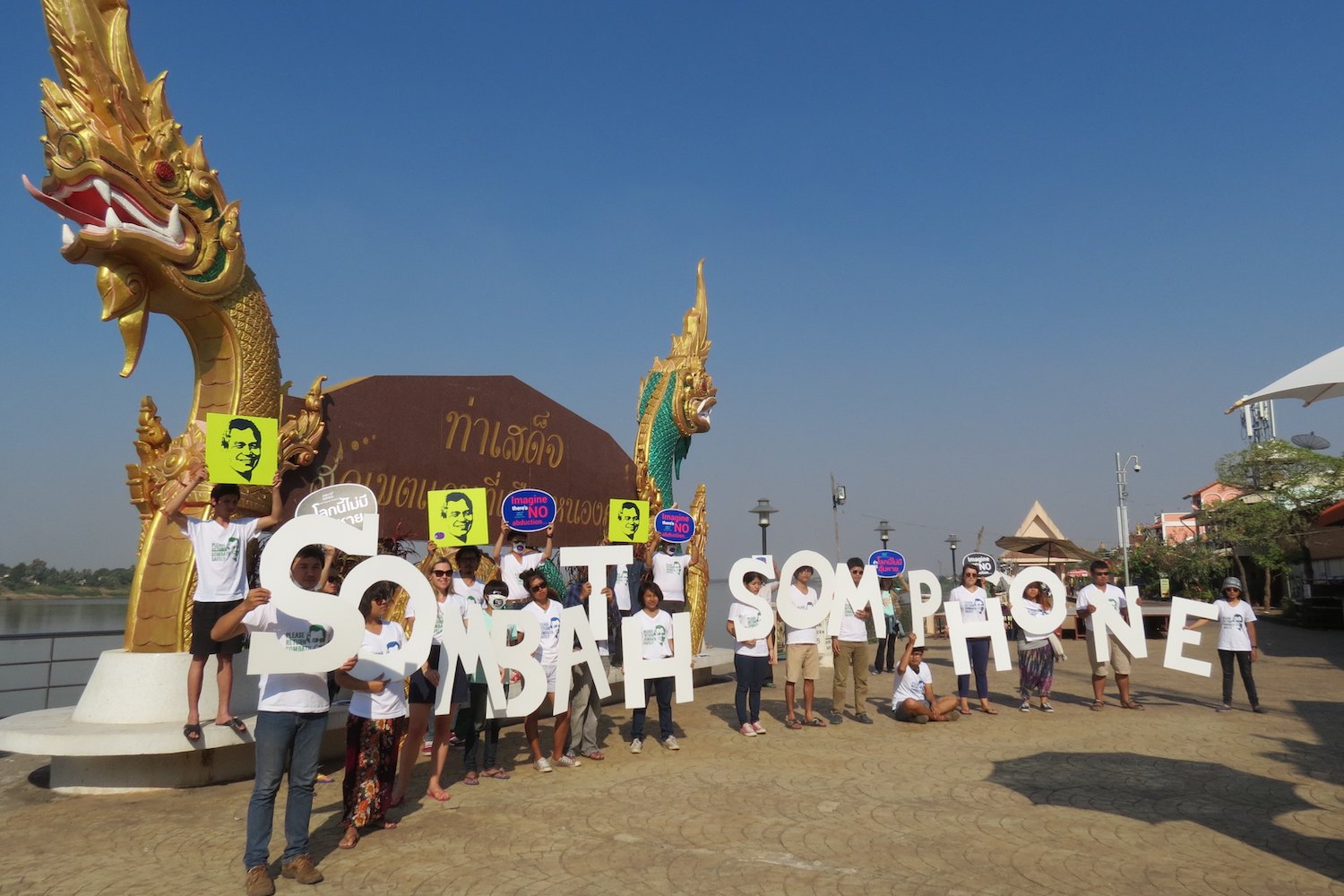Asian Times: 15 December 2017
By SHAIVALINI PARMAR AND SHIWEI YE
Five years ago on the Friday before Christmas, distraught colleagues and friends of Sombath Somphone gathered at a press conference at the Foreign Correspondents’ Club of Thailand after his disappearance in Laos’ capital, Vientiane. Last week, after another press conference at the FCCT on his case, we are nowhere closer to the truth than we were in 2012, but a new revelation adds weight to the widely held belief that the Laotian government was behind his disappearance.
A respected advocate for sustainable development and community empowerment, Sombath was driving home when he was stopped at a police checkpoint in Vientiane on the evening of December 15, 2012 – five years to the day before the publication of this article. Video footage showed him, moments after he got out of his car, being escorted by a group of unidentified individuals into a white van and driven away. An unidentified person then drove Sombath’s car away.
Last week, it was revealed that witnesses, who spoke on the condition of anonymity, saw Sombath in a police holding facility in Vientiane later that same evening, with his car parked nearby. In 2015, Ng Shui-Meng, Sombath’s wife, also obtained and publicly released additional closed-circuit TV footage showing Sombath’s car being driven toward the city center by an unknown individual. This suggests that the vehicle’s whereabouts could likely be traced.
Despite the fact that Sombath was taken from a police checkpoint, the Laotian government has given a blanket denial that it holds any knowledge of or was involved in his disappearance. Authorities have repeatedly assured diplomats, visiting parliamentarians, and the United Nations that they are investigating the case.
Sombath’s family has since sought updates from the police regarding their investigation but there has been minimal effort to keep his family apprised of the status of his case. In fact, Ng Shui-Meng has said that she had not received any further information from the police since they issued their last “investigation” report in 2013.
Instead of conducting a credible inquiry, officials have put forward insinuations of underground Thai mafia involvement or personal business disputes as reasons behind Sombath’s disappearance.
Laos has signed but not ratified the International Convention for the Protection of Persons from Enforced Disappearance. Under international law, enforced disappearance is defined as the arrest, detention, or abduction by a state agent or person acting on behalf of the state, followed by denial of the disappearance or concealment of the whereabouts of the disappeared. Notably, enforced disappearance is a continuing offense insofar as the whereabouts of the victim remains undisclosed.
Sombath’s disappearance is one of at least 13 known cases of enforced disappearances in Laos. Two Thai political activists in exile, Wuthipong Kachathamakul and Itthipol Sukpaen, have also been abducted while in Laos, in 2016 and 2017 respectively. In all cases the government has made minimal effort to determine their fate or whereabouts.
The government’s repeated failure to investigate Sombath’s disappearance effectively, and many others, is a breach of its obligation under the International Covenant on Civil and Political Rights (ICCPR), which stipulates that governments must provide an effective remedy for a violation of the right to life, liberty and security.
Laos is scheduled to be reviewed next year by a UN committee tasked with monitoring compliance with the ICCPR, which last month sent the government a list of preliminary questions, including one on the progress achieved in investigating the enforced disappearance of Sombath and 12 other cases.
The disappearance of Sombath, and indeed many others, is reflective of the increasingly regressive rights landscape in Laos. Although operating in a restrictive environment, civil society was developing further in the years before his disappearance. After Sombath’s abduction, a tangible climate of fear took hold among civil society, where colleagues and acquaintances were reluctant to even discuss his case.
Non-governmental organizations, development partners, and even international organizations began to self-censor. Several international organizations operating in Laos were invited to speak at last week’s press conference, but they all declined.
Peaceful critics have also been handled harshly by authorities. Most recently, in March this year three Lao migrant workers were sentenced to 12-20 years in prison for Facebook posts critical of the government and protesting outside the Laotian Embassy in Thailand.
Additionally, a new decree on non-profit associations went into force last month, placing onerous requirements on civic groups and giving the government sweeping power to control and even criminalize their activities, based on vague and broadly worded criteria, such as those outlawing actions that “destroy national, collective, and individual interests.” The decree makes it a “duty” for associations to follow the ruling Communist Party’s policy and guidance.
The Laotian government’s current approach to the Sombath case and civil society is inimical to the international consensus on the importance of a vibrant civil society and will ultimately undercut effectiveness of international development assistance. Whether and how the international community responds, beyond the occasional public statements of concern, remains to be seen.
The tragedy and impact of Sombath’s disappearance are manifold. First and foremost, it is the family whose suffering is further perpetuated in the denial of justice and truth. The agony of not knowing now, and likely never knowing, is impossible to quantify.
It is also a tragedy for Laos when one of its most respected citizens, who had worked tirelessly to improve the livelihoods of communities, vanished without a trace.
